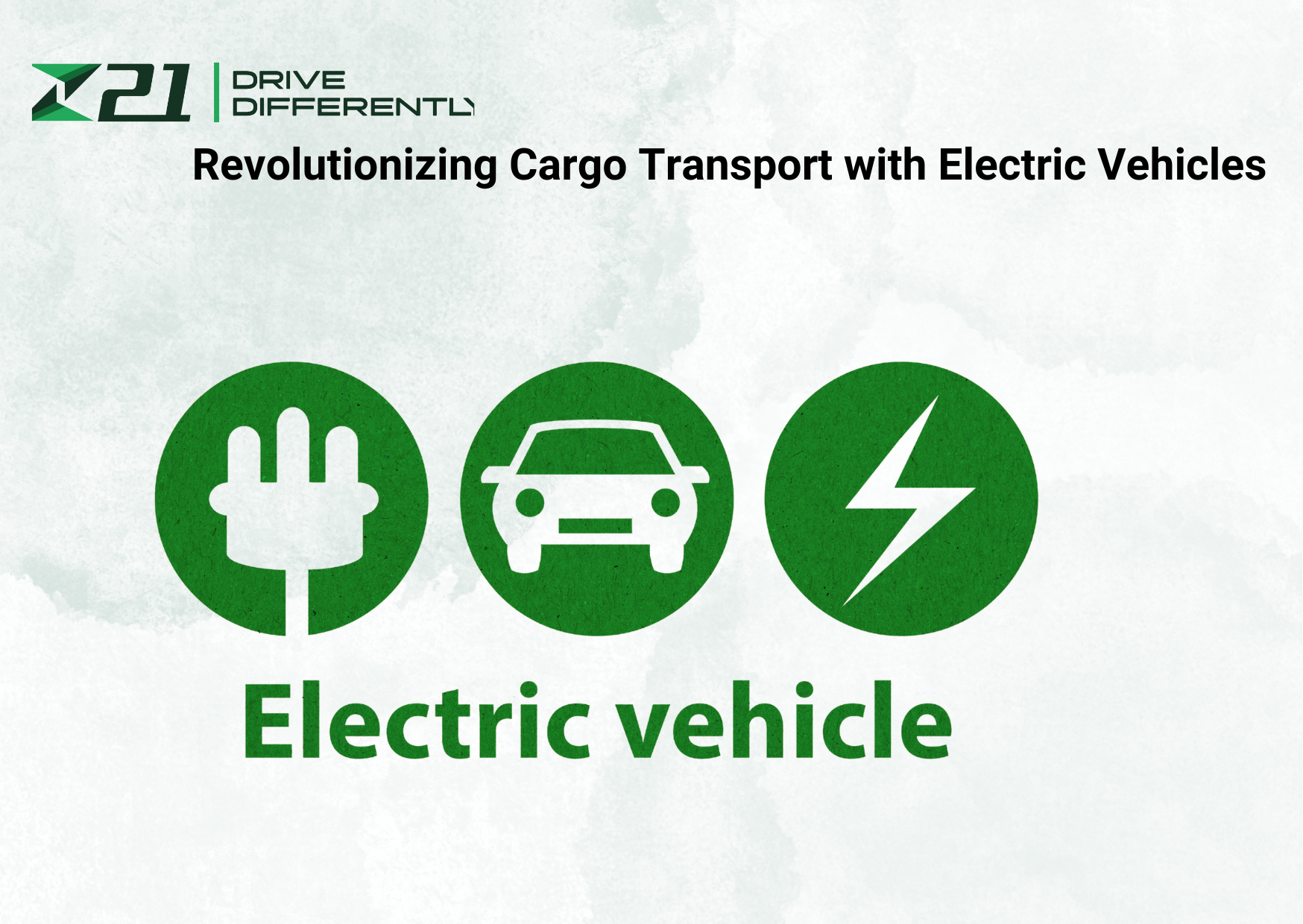Logistics and transportation is one of the industries that is experiencing a major revolution due to the push for green solutions that are also cheap. Among them, the most promising development is Revolutionizing Cargo Transport through electric vehicles (EVs). As the fuel prices increase, the government policies on emissions become more and more stringent, and new technologies appear, companies are realizing the benefits of electric cargo transportation.
Why Electric Vehicles are Revolutionizing Cargo Transport
1. Green and Sustainable Transport
The most significant force that would propel Revolutionizing Cargo Transport is the environmental aspect of electric vehicles. The new EVs are a far cry from the traditional electric or diesel or petrol-fueled cargo trucks as they do not emit any pollutants into the atmosphere. Since international strategies are built towards zero-emission targets, organizations that use electric cargo transport improve the quality of the planet.
2. Lower Operational Costs
Electric cargo vehicles are cheaper to use when compared to vehicles that are powered by fuel. Electricity is cheaper than diesel and since the electric vehicles have fewer parts that are in motion, they are cheaper to maintain. Cumulatively, these lead to significant cost savings, making Revolutionizing Cargo Transport with electric vehicles a rational business proposition.
3. Improved Performance and Load Bearing Capability
Contemporary electric cargo vehicles are fitted with strong battery systems that are combined with efficient motors, which provide high torque and load carrying capacity. This makes them ideal for many different cargo transportation requirements such as intra-city, inter-city and even cross-country. Technological developments in battery power guarantee longer distances between recharges for electric vehicles, which makes for a stronger argument for Revolutionizing Cargo Transport with electric mobility.
4. Government Reimbursements and Policies
Most governments around the globe are encouraging the use of electric cargo vehicles by providing incentives, subsidies as well as tax credits. Such measures enable the firms to adopt electric fleets without much strain as they avoid the high initial costs of implementing such policies. This strong policy support is one of the reasons that help to Revolutionize Cargo Transport and drive the adoption of EVs in logistics.
Uses of Electric Vehicles in Cargo Transportation
1. E-Commerce and the Last Mile Delivery
The e-commerce industry has grown rapidly and has put pressure on the logistics industry to find effective and efficient last-mile delivery solutions. Electric cargo vehicles are especially suitable for short distance deliveries, thus contributing to lower operational expenses and no emissions. This makes them an essential component of Revolutionizing Cargo Transport in urban logistics.
2. Freight and Logistics Industry
Electric trucks are slowly finding their way into the freight and logistics industry as organizations seek to cut expenses on fuel and emissions. New EVs for medium and heavy loads are being introduced to logistics systems to improve the sustainability of goods transport at a lower cost.
3. Cold Chain and Perishable Products Transportation
Perishable goods transportation needs effective, dependable and temperature sensitive means. Electric cargo vehicles fitted with appropriate refrigeration systems guarantee the products are fresh and safe from contamination, and fuel costs are kept low. This is an important step in Revolutionizing Cargo Transport for industries such as food, pharmacy and dairy.
4. Construction and Heavy Duty Cargo Transportation
With the help of new developments in batteries and load-carrying capacity, electric vehicles are being increasingly employed in construction work and carrying of heavy loads. Due to their capability to tow big loads without the use of fossil fuels, EVs are ideal for extensive industrial uses.
The future of Revolutionizing Cargo Transport can be seen with the advancement in Technology.
Some of the key developments that will drive the next phase of EV adoption include:
- Battery Advancements: New technologies such as the solid-state batteries and ultra-fast charging solutions that treat the evolution of the electric cargo vehicles.
- Autonomous Electric Vehicles: The use of AI and automation in electric cargo transport will boost efficiency, bring down the involvement of human elements and cut down the expenses that are associated with logistics.
- Expansion of Charging Infrastructure: A denser and faster charging infrastructure will support smooth EV operation resulting in the shift towards more sustainable cargo transportation.
- Increased Fleet Electrification: Many companies will transition to all-electrical fleets for their companies in order to save money and meet global environmental objectives.
The change towards Revolutionizing Cargo Transport with electric vehicles is not a trend anymore but the future of the transportation industry. Companies that adopt the EV technology today will create a competitive advantage by cutting costs, emissions, and increasing efficiency. The future of next generation cargo transport will be more dependent on electric vehicles, as the governments, EV manufacturers and industries forge ahead in their partnership will gain a competitive edge by lowering costs, reducing emissions, and improving efficiency. As governments, EV manufacturers, and industries continue to collaborate, electric vehicles will play an increasingly crucial role in shaping the next generation of cargo transport.
At Zero21 Electric Vehicle we are firmly determined to promote this change by providing cutting-edge and high-quality electric cargo transport solutions including electric 3-wheelers. The The company’s mission statement is to help companies around the world become more environmentally friendly and cost-effective.


